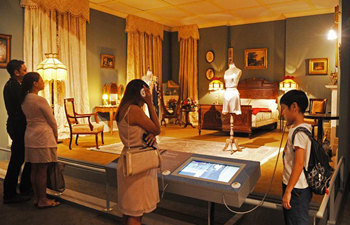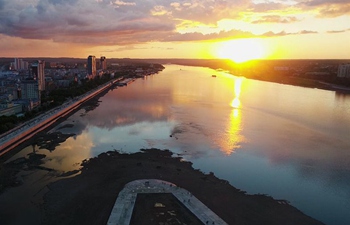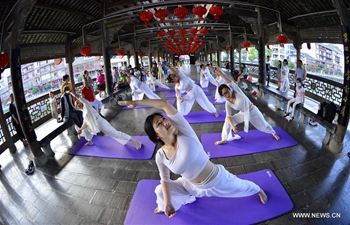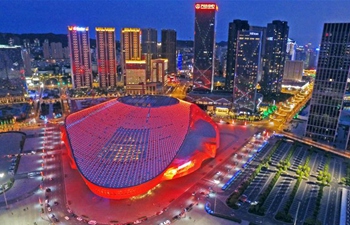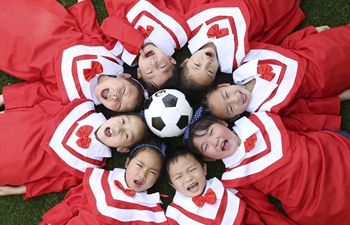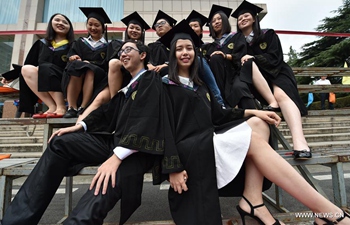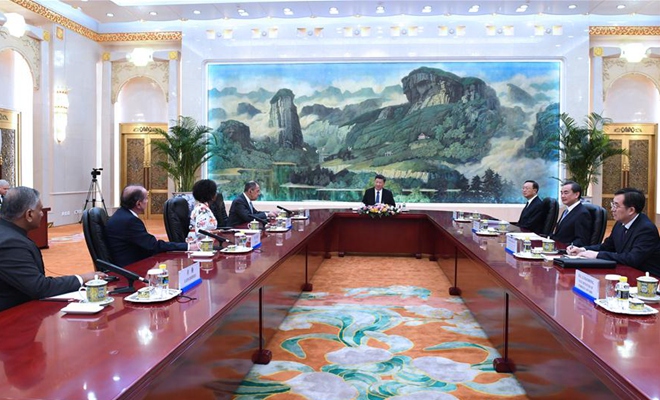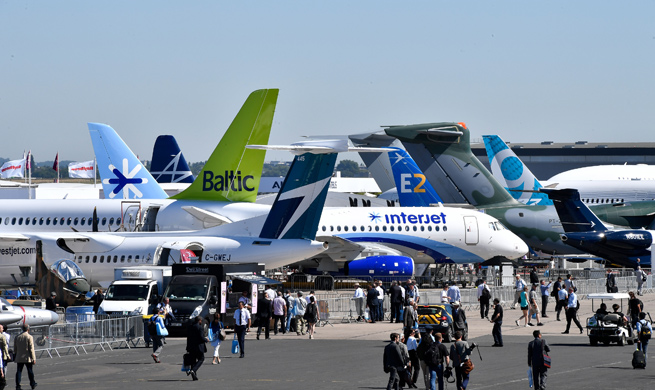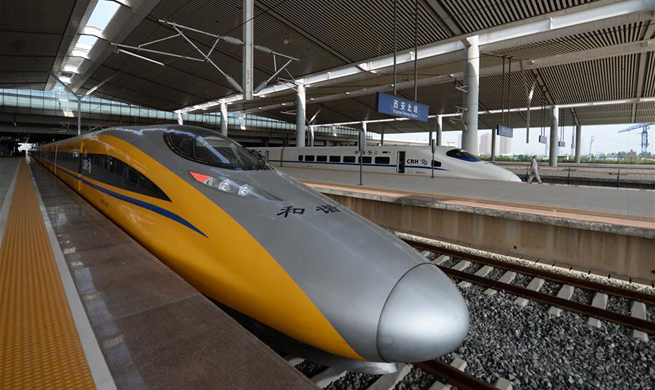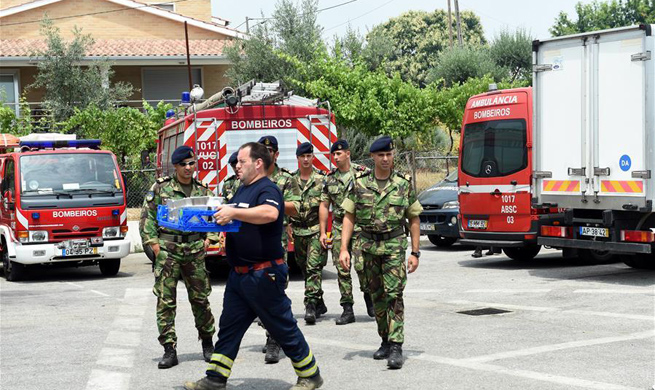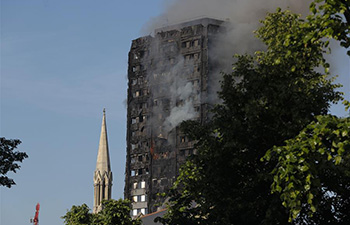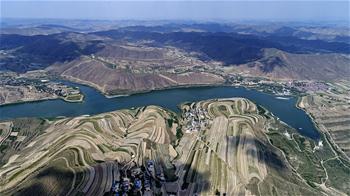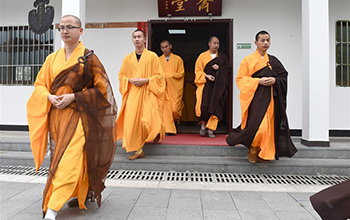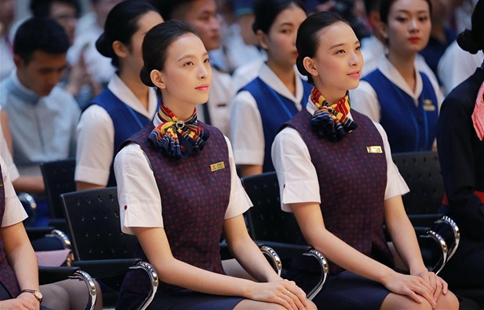by Alessandra Cardone
VICENZA, Italy, June 20 (Xinhua) -- Similar to a haute cuisine recipe, many varied ingredients are needed to make a great chef.
This is the concept behind the Master of Italian Culinary Arts program held in Vicenza in the northeast Veneto region of Italy, which recently closed its 2017 edition.
The program this year featured sixteen students, 48 lecturers -- among which were 24 Michelin-starred chefs -- and some 800 hours of theory and practical lessons, to be followed by a four-month internship in an Italian restaurant.
Waiting in the school's auditorium to be awarded for the first phase of their master, Marta, Alessandro are in their late 20s and came from different regions of the country to attend the course and are soon to embark on traineeships at 16 Michelin-starred kitchens in Italy.
"I worked as a cook for seven years before enrolling in the Vicenza master," Marta Sbaffi, from the town of Recanati in the Marche region, told Xinhua.
"When I got to a certain point, however, I realized I still missed some basics in order to make a real leap forward," Sbaffi explained.
Yet, Italy is a land of good food and good cooking. It has plenty of schools in the sector. So, what makes this master course somehow special?
One factor might be the allure of one of the founders -- three Michelin-starred chef Massimiliano Alajmo -- who launched the school with his brother Raffaele.
But the real secret seems to lie in what students here learn: food science, cooking techniques, and haute cuisine, of course, but also food chemistry and physics, arts and aesthetic, sensory analysis, livestock farming, agriculture, and fishing, and even cross-cultural contamination.
This interdisciplinary approach was the hallmark of the initiative, organizers said. "Our aim is not to bang out new chefs: it is to offer each student a chance to express himself," Alajmo said.
"We teach cuisine in all of its aspects at the highest level, thanks to the best professionals in Italy."
"Yet, our lessons also stretch from perfumery to chemistry, from aesthetic to history of Italian gastronomy," he said.
Understanding the mechanism of sensory perception -- for example, how the sense of smell influences the sense of taste -- or what chemical reactions take place during a specific preparation may make the difference between a good cook and an excellent one, according to the chef.
Organized since 2013 by the Chamber of Commerce of Vicenza, the Master of Italian Culinary Arts has seen almost 90 students graduate from its program so far.
Alessandro Brusamento is about to intern at the three-Michelin-starred restaurant of Massimo Bottura, which ranks second on the list of the world's 50 best restaurants 2017, a challenge that both electrifies and fills him with terror, he said.
He said he would treasure the first rule he was taught in Vicenza: work hard, stay humble, and persevere...but do not be scared of your own creativity.
"The basic lesson is that nothing is fully wrong, or fully right ... The crucial thing is to do what you have in mind, but paying respect to quality, to raw materials, to the client, and to your own work," the student from Padua said.
Brusamento seemed positive the master's multidisciplinary approach could make a difference for him.
"Take food chemistry and physics: it helps you understand how to enhance some properties of a food rather than others, or how your tongue detects tastes, or how cooking temperatures can change tastes," he said.
To Brusamento, cuisine is one of the best forms of art, as it is "a unique act of creation that takes place every single time you perform".




